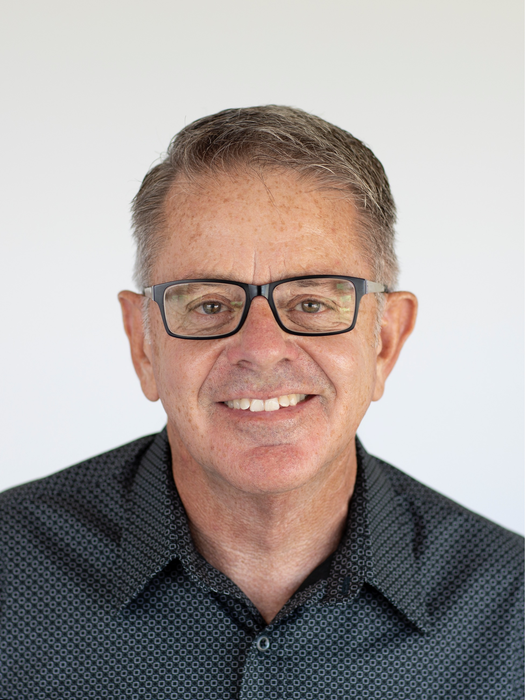LA JOLLA—(March 3, 2022) Salk Institute Professor Martyn Goulding will receive the 2022 Brain Prize for pioneering research on the neuronal circuits that control movement, the Lundbeck Foundation announced today.

Credit: Yolanda Leenders-Goulding
LA JOLLA—(March 3, 2022) Salk Institute Professor Martyn Goulding will receive the 2022 Brain Prize for pioneering research on the neuronal circuits that control movement, the Lundbeck Foundation announced today.
Goulding shares the prize—the world’s top recognition in neuroscience, totaling 10 million DKK (approximately $1.5 million)—with Professor Ole Kiehn at the University of Copenhagen in Denmark and Professor Silvia Arber at the University of Basel and Friedrich Miescher Institute in Switzerland. They will receive the award from His Royal Highness The Crown Prince of Denmark at an event in Copenhagen on May 24.
“The ability to move is fundamental,” says University of Edinburgh Professor Richard Morris, who served as chair of the Brain Prize Selection Committee at the Lundbeck Foundation. “From the first steps of a baby through to the balance and agility required in riding a bicycle that gets us to work, movement is something we do all the time. Understanding how it all works in the brain and spinal cord is a huge scientific problem. Elegant experimental work of the three recipients has helped uncover how intentions to move are transmitted through the intricate firing of brain cells all the way down to the specific pattern-generating cells of the spinal cord whose activity controls the muscles of the fingers, arms and legs.”
By developing new genetic strategies, Goulding identified and characterized many of the neurons in the spinal cord that are required for movement. Among his many accomplishments, he discovered the types of neurons that guide alternating steps during walking, influence the speed of locomotion, and direct flexion-extension—a fundamental feature of movement in animals with limbs. He has also mapped the spinal cord circuitry that processes the sense of light touch, and defined key pathways in the cord that transmit and control itch and pain.
The work of Goulding and his corecipients helps inform the development of treatments for neurological conditions in which movement is impaired, such as Parkinson’s disease, ALS and spinal cord injuries.
“This is the beauty of basic research, the cornerstone of the Salk Institute—we uncover intricate details about the way life works, in this case what allows us to move, and that information helps determine what goes wrong in disease and how we might compensate for or repair it,” says Salk President Rusty Gage. “Martyn’s ground-breaking work not only exemplifies this approach, but sets the standard for an entire field of research.”
Goulding was raised in New Zealand by a single mother who was paraplegic after contracting polio. He earned his doctorate in cellular and molecular biology from the University of Auckland and completed his postdoctoral training at the Max Planck Institute for Biophysical Chemistry in Germany. He was recruited to join the Salk Institute faculty in 1993.
“I am honored to receive the 2022 Brain Prize, which recognizes the important work being done to functionally map the circuits in the spinal cord and brain that generate and control locomotion,” says Goulding, who also holds the Frederick W. and Joanna J. Mitchell Chair at the Salk Institute. “Complex nervous systems like ours are built around movement, and so studies of movement are central to understanding the inner workings of the brain. Our work also holds promise for developing new strategies to deal with diseases, injuries and age-related changes that impair the motor system and our ability to move. My receiving the Brain Prize reflects the uniquely interactive and creative environment of the Salk Institute, where scientists are challenged to make important discoveries.”
About The Brain Prize:
The Brain Prize is the world’s largest neuroscience research prize, and it is awarded each year by the Lundbeck Foundation. The Brain Prize recognises highly original and influential advances in any area of brain research, from basic neuroscience to applied clinical research. Recipients of The Brain Prize may be of any nationality and work in any country in the world. Since it was first awarded in 2011 The Brain Prize has been awarded to 41 scientists from 9 different countries. Read more about The Brain Prize laureates here. Brain Prize recipients are presented with their award by His Royal Highness, The Crown Prince of Denmark, at a ceremony in the Danish capital, Copenhagen.
About the Salk Institute for Biological Studies:
Every cure has a starting point. The Salk Institute embodies Jonas Salk’s mission to dare to make dreams into reality. Its internationally renowned and award-winning scientists explore the very foundations of life, seeking new understandings in neuroscience, genetics, immunology, plant biology and more. The Institute is an independent nonprofit organization and architectural landmark: small by choice, intimate by nature and fearless in the face of any challenge. Be it cancer or Alzheimer’s, aging or diabetes, Salk is where cures begin. Learn more at: salk.edu.




